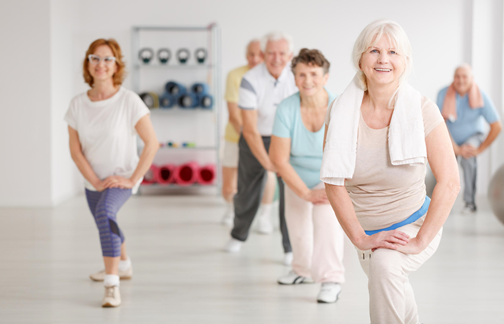Aging can be full of joy, wisdom, and new meaning. But it can also bring challenges. Many older adults live with long-term health problems.
Many seniors face chronic illness, making it very important to find ways to stay well. Wellness strategies give older adults tools to stay strong, happy, and independent. With the right support, aging can be a time of growth and purpose.
Continue reading to get the complete picture.
Wellness is More Than Health
When we think about wellness, we often picture physical health. But real wellness is more than that. It also means caring for the mind, emotions, and social life.
Seniors do best when all parts of wellness are supported. Families and caregivers play a key role here. When they see the whole picture, they can offer better care and encourage healthy habits, such as energy boosting routines for seniors, to help older adults feel balanced.
Moving the Body Every Day
Staying active is one of the most important steps for elder wellness. Gentle movement keeps the body strong and flexible, such as:
- walking
- stretching
- light exercise
- yoga
- tai chi
Daily activity also lowers stress and lifts mood. Even short walks outside can bring energy and joy. Simple strength work, like lifting light weights, makes it easier to do everyday tasks.
Eating for Energy and Health
Food is another building block of wellness. Seniors need meals that are colorful, balanced, and full of fresh ingredients. Fruits, vegetables, whole grains, and lean proteins provide the body with fuel and protect against disease.
Drinking enough water is also vital, since dehydration is common in older age. Healthy eating helps prevent heart problems, diabetes, and more. Cutting down on sugar and processed foods makes a big difference.
Families can help by planning simple, tasty meals and sitting down to eat together. Shared meals not only feed the body but also bring connection and comfort.
Keeping the Mind Active
Mental health matters just as much as physical health. Seniors should keep their minds busy and curious.
Reading books, solving puzzles, or learning new skills keeps the brain sharp. Many enjoy hobbies like painting, gardening, or playing music.
Social time is also a powerful way to keep the mind active. Talking with friends, joining a club, or taking part in local events prevents feelings of isolation. Staying connected helps seniors feel valued and gives them a sense of belonging.
Caring for Emotional Well-Being
Aging can bring changes that affect emotions. Seniors may deal with stress, sadness, or loss. Supporting emotional wellness is just as important as caring for the body.
Simple practices like mindfulness or journaling can calm the mind. Taking time to reflect on gratitude also builds a positive outlook.
Sometimes, older adults need extra help. Talking with a counselor or therapist can make hard feelings easier to manage. Professional support, along with family care, creates strength during tough times.
A Journey Toward c
Wellness strategies help seniors live healthier, brighter lives. Physical activity, good nutrition, mental exercise, and emotional care all work together to support independence. With strong support, aging can be a journey of resilience and joy.
Families, caregivers, and communities have the power to help elders feel valued and confident. By making wellness a daily focus, we can create a path where older adults age with grace, strength, and dignity.
This is just the beginning! Uncover more insights in our blog.
